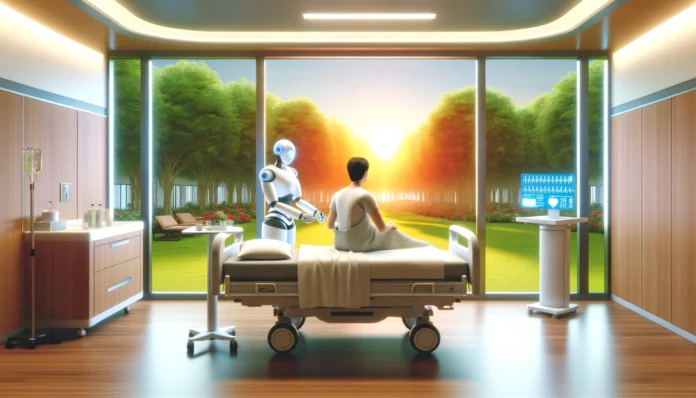In the rapidly evolving landscape of healthcare, the integration of robotics has transcended traditional boundaries, reshaping the patient experience from diagnosis to treatment and beyond. As we delve into the realm of patient-centric care, it becomes increasingly evident that robotics play a pivotal role in not just diagnosing ailments but also in fostering holistic well-being and personalized treatment plans tailored to individual needs.
Robotic technologies have significantly expanded the horizons of medical diagnostics, enabling healthcare professionals to delve deeper into the intricacies of disease detection and prognosis. With advancements in imaging modalities such as MRI, CT scans, and ultrasound, robots equipped with precision sensors and algorithms can navigate the human anatomy with unparalleled accuracy, facilitating early detection of diseases and abnormalities. This proactive approach to diagnosis empowers patients with timely interventions, enhancing their chances of successful outcomes and improved quality of life.
However, the impact of robotics transcends the confines of diagnostic realms, extending into the realms of treatment and rehabilitation. In the realm of surgery, robotic-assisted procedures have revolutionized surgical precision and minimally invasive techniques, offering patients shorter recovery times and reduced risks of complications. From robotic-assisted laparoscopic surgeries to intricate neurosurgical interventions, these cutting-edge technologies augment the capabilities of skilled surgeons, paving the way for enhanced patient safety and surgical outcomes.
Beyond the operating theater, robotics continue to redefine the landscape of patient-centric care through innovative rehabilitation modalities. Robotic exoskeletons, for instance, provide individuals with mobility impairments the opportunity to regain independence and mobility, fostering a sense of empowerment and improved quality of life. By leveraging artificial intelligence and sensor technologies, these exoskeletons adapt to the user’s movements, offering personalized assistance and support tailored to their specific needs.
Moreover, the integration of robotics into the fabric of patient-centric care transcends physical boundaries, encompassing the realm of mental health and emotional well-being. Social robots equipped with natural language processing capabilities and empathetic algorithms serve as companions for patients, offering emotional support and companionship during times of distress or isolation. These therapeutic interactions not only alleviate feelings of loneliness but also contribute to the overall psychological resilience and well-being of patients.
In addition to enhancing the quality of care, robotics also hold the potential to mitigate healthcare disparities by expanding access to specialized services and expertise. Telemedicine platforms powered by robotic interfaces enable remote consultations and interventions, bridging the gap between patients and healthcare providers regardless of geographical constraints. This democratization of healthcare empowers patients with greater autonomy and control over their health outcomes, fostering a culture of patient-centricity and inclusivity.
As we navigate the complexities of patient-centric care in the digital age, it is imperative to acknowledge the ethical and societal implications inherent in the integration of robotics into healthcare ecosystems. From concerns surrounding data privacy and security to questions of algorithmic bias and equitable access, the ethical considerations surrounding robotics demand careful deliberation and proactive mitigation strategies. By fostering interdisciplinary collaborations and engaging stakeholders in transparent dialogue, we can ensure that the benefits of robotics are maximized while mitigating potential risks and safeguarding patient welfare.
In conclusion, the advent of robotics heralds a new era of patient-centric care, redefining the boundaries of healthcare delivery and fostering a culture of empowerment and inclusivity. By harnessing the transformative potential of robotics, we can transcend traditional paradigms of diagnosis and treatment, offering patients personalized care experiences that prioritize their holistic well-being and autonomy. As we embark on this transformative journey, let us embrace the possibilities of robotics in healthcare with unwavering commitment to ethical principles and patient-centered values.





